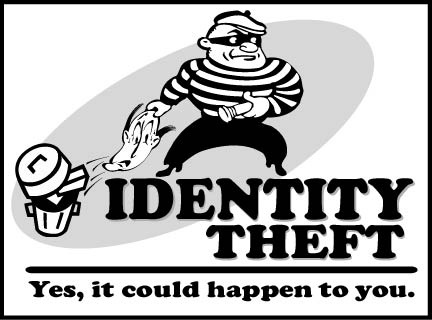
by Adam | Jul 8, 2015 | Credit Repair
Managing your credit can take some work, but it will pay off when you have lower interest rates and more lending options. Unfortunately, incorrect information can occasionally make its way into your credit report and damage your score. Left unresolved, you’ll continue to pay the consequences. If you notice something incorrect on your credit report, you should write a credit dispute letter, but sometimes that will need to be followed by a Method of Verification letter. Here’s what you should know: What is a Method of Verification? If you dispute something on your credit report and the credit reporting agency tells you that the disputed item has been verified, you have the right to request verification in the form of a “method of verification.” According to the Fair Credit Reporting Act (FCRA), the credit reporting agency is required to give you method of verification within 15 days of your request. This should be hard evidence that goes all the way back to the original creditor. Don’t settle for verification from a third-party database. Writing a Method of Verification Letter If a dispute comes back verified, but with no actual verification or documentation, it is time to send a letter and request it. Follow these steps when writing a Method of Verification Letter: Call the credit reporting agency using the phone number at the top of the verification report in question. Give them your credit report number and request the method of verification. Cite FCRA, Section 611. Request hard evidence that goes back to the original creditor and ask for the original creditor’s information. If the person you talk to...

by Adam | Jun 25, 2015 | Credit Repair
The Credit Repair Organization Act (CROA) was passed in 1996 as a way to protect consumers from shady tactics (and downright scams) in the credit repair industry. Designed to regulate the credit repair industry, as well as encourage consumers to be informed about their credit repair rights, the CROA places several restrictions and requirements on credit repair organizations (any group, company, or organization offering credit repair services for a fee). Restrictions & requirements placed on credit repair companies by the CROA According to the CROA, a credit repair organization cannot: Advise you to lie about your credit history (or lie on your behalf) Misrepresent their services Alter or create a new identity for you Charge you until services have been provided In addition to these restrictions, the CROA requires credit repair companies to provide a contract to consumers before agreeing to perform any services. The contract must contain details outlining the credit repair services to be performed, the time frame needed to carry out those services, and the payment amount. They must also allow for a 3-business day cancellation period, during which the consumer may cancel for any reason without incurring any fees. Are there still credit repair scams out there? Thankfully, the CROA is pretty effective at preventing credit repair scams, but as a consumer you still need to be diligent. For example, two credit repair organizations were sued by the FTC in 2005 for targeting Spanish-speaking consumers with promises of deleting accurate information from their credit reports. These kinds of deceptive claims are precisely what the CROA aims to combat. Unfortunately, there are still scam artists out there who often go...

by Adam | Jun 15, 2015 | Credit Repair
If you’ve already asked yourself these four questions before hiring a credit repair company, then your next question might be about cost. Obviously, if you hire an expert to conduct a service for you, you don’t expect them to do it for free – but how much can you reasonably expect to pay for a credit repair company to go to work improving your credit score? The answer is: it depends on the company. Let’s break down the pricing options for 3 of the top, and most respected, credit repair companies, but first: Don’t Forget You Have the Option of DIY Credit Repair – Free of Charge (not counting postage stamps) When it comes down to it, there’s always DIY Credit repair, which only costs some free time and postage (you’ll be mailing a lot of letters). If you like to take matters into your own hands, and you’re motivated enough to stick with it for months on end, then this may be the best option (it’s certainly the cheapest). Cost of Hiring a Credit Repair Company Maybe you’re not too excited about going the DIY route, and you want to know the cost of hiring a professional credit repair company. Most companies will charge you a monthly fee as well as an initial startup fee. You’ll need several months before you start to see positive results, but the amount of time required depends mostly on your individual credit situation. Here’s the basic pricing information for 3 of the top credit repair companies: SkyBlue Credit Repair Price: $59 setup fee, $59 monthly (or $99 for couples). CreditRepair.com Price: $89.95 a month, with no...

by Adam | Jun 8, 2015 | Credit Repair
It’s much easier to do the small things to help prevent identity theft than it is to clean up the damage of having your identity stolen. However, even the most diligent among us can still fall prey to identity fraud. If you discover that your identity may have been stolen, do these 5 things immediately: 1. Freeze your credit cards or accounts where the fraud occurred Contact the credit card company or institution where you’re experiencing fraudulent charges and have them freeze the account. This will effectively stop the bleeding and prevent any more damage from occurring. In order to begin safely using an account again, you may need to re-set PINs, request new cards, etc., but for now just focus on alerting your bank/creditor of the possible fraud. 2. Place a 90-day fraud alert on your credit reports A fraud alert means that the credit reporting agencies will take additional precautions when verifying your identity. You only need to request an alert at one of the credit reporting agencies (they will contact the other 2 for you): Experian Equifax TransUnion 3. File an Identity Theft Affidavit with the FTC The Federal Trade Commission (FTC) is tasked with fighting and preventing identity theft. They rely on people to report suspected identity theft, which you can do online or by calling 877-438-4338. 4. Contact police and file a report Identity theft is a crime, and so you need to report it to the authorities. The main reason for doing this is to create a police report, which you will need when working with creditors and the credit reporting agencies to resolve all fraudulent...

by Adam | Jun 1, 2015 | Credit Repair
“An ounce of prevention is worth a pound of cure.” – Benjamin Franklin Although Benjamin Franklin probably wasn’t thinking about your credit score when he penned this famous line, it certainly applies to identity theft. In fact, there’s a new victim of identity theft in the U.S. every 2 seconds. While not all cases of identity theft are preventable, most are. All it takes is a few precautionary measures to drastically improve your chances of never having to deal with the enormous fallout of identity theft. Here are 7 easy tips for preventing identity theft. 1. Get a paper shredder Seriously. You can find a decent paper shredder for under $30, and it’s the most effective way of making sure your sensitive documents, papers, receipts, etc. aren’t waiting to be snatched up by dumpster-diving fraudsters. 2. Install an effective firewall on your computer For would-be identity thieves who are a tad more tech-savvy than their dumpster-diving cohorts, a firewall is one of the best lines of defense against hackers trying to steal sensitive information from your home computer or laptop. 3. Be aware of who’s watching over your shoulder Simply be aware of who is around you when you’re typing in a PIN or accessing a bank account on your mobile phone. Much of the time, identity theft is a crime of opportunity – so don’t give those around you the opportunity to steal your identity. 4. Keep and organize paper records It’s important to keep and organize paper records (think bank statements, receipts, invoices, etc.) to track all your accounts, spending, contracts, terms and conditions, and more. Basically, it helps you notice...







Recent Comments